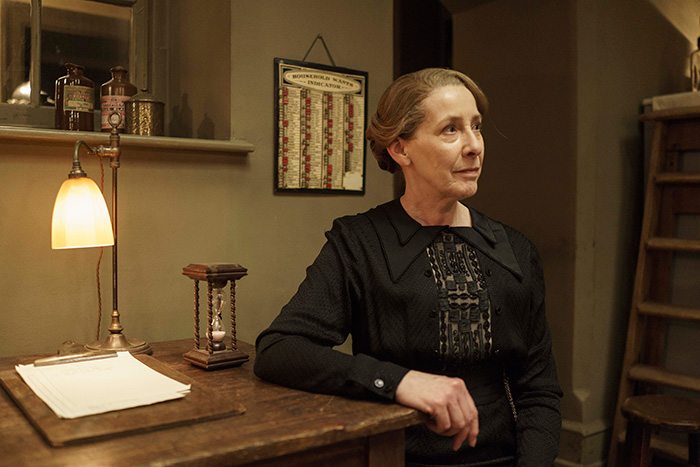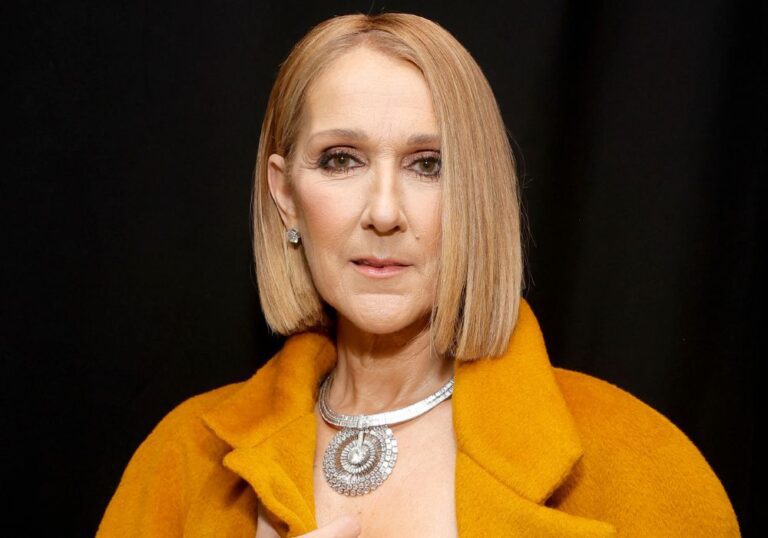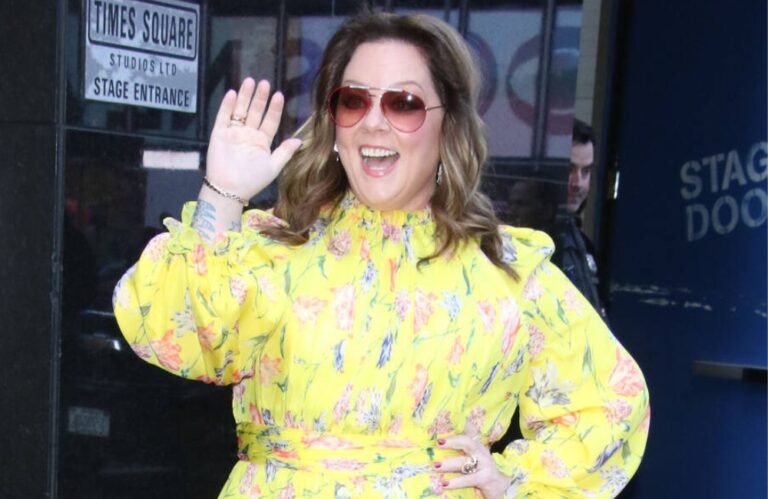Actress Phyllis Logan, otherwise known as Mrs Hughes (then Carson) on the hit series Downton Abbey, captured the hearts and minds of fans across the globe.
No stranger to the screen, Logan has a long standing career in television, film and theatre, previously playing Lady Jane Felsham in Lovejoy, a series that saw the actress co-star, alongside Ian McShane for eight years and nearly 50 episodes.
But it was Logan’s character, Mrs Hughes, that took us on a roller coaster of emotions. From stern matriarch of Downton’s ‘downstairs’ to beloved and cherished family member, Logan’s character arguably went through one of the biggest transformations throughout the six seasons.
After six seasons, Downton Abbey, has closed its doors. The show that took its audience on a journey from the sinking of the Titanic in 1912, to the blood and gore of a World War I, and into the dawning of a new age, has made fans of all ages cry and laugh.
Phyllis Logan sits down with MiNDFOOD to discuss the bittersweet feeling of saying goodbye to Downton and share some of her fondest memories from the six seasons.
So it’s the end of an era. Obviously you finished filming the show last year. But what was it like seeing the final episode air on TV and knowing the TV series officially over?
It feels odd to know that we’re not in the middle of filming. We would be half way through a season by now. So it does feel strange. When I read that final script, I thought, ‘I wonder how Julian Fellowes is going to tie everything up?’ But I thought he did it really well and then when we saw the final scene, it was like reliving it all over again!
That final scene, when we’re all singing ‘Auld Lang Syne’, that was actually our last scene. So we were all in bits afterwards, as I’m sure you could tell, it was an incredibly emotional time.
One of Downton’s strengths, that separated it from previous period dramas, was its depiction of the lives of those ‘downstairs’. How important do you think this was to the success of Downton, or how people perceived such a show?
It was almost like a reflection of each other (upstairs and downstairs), because upstairs you had Lord and Lady Grantham and the youngsters around and downstairs, you had Carson and Hughes who were the head of the thing. But it truly was so similar to upstairs – everyone was just looking for love.
You had Lady Mary and Matthew and their story, will they… wont they? And then, there was Mr Bates and Anna downstairs. So whilst their lives were different, in terms of social standing, emotionally, the characters all shared the same emotions and turmoils and in that way, their lives were pretty similar really. So it’s quite a mirror image of upstairs and downstairs. And the fact that Julian Fellowes tells a great story and does an incredible job of crafting believable characters that everyone can relate to.
What I loved about the show was the female characters and how their roles were so vital, rich and complex, they weren’t depicted as stereotypical characters. They were all about breaking boundaries to some extent. Is this something that you admired about the show?
Absolutely! Take Dame Maggie Smith, of course she’s always brilliant in everything she does, but she, right from the start is this incredibly strong woman who yes, could be manipulative – but could also be manipulated. And down to Isobel Crawley, who was a bit of a ‘lefty’ as we would call it. You would imagine her to be more of a ‘W.I’ type, you know, a ‘woman’s institute’ type always doing the right thing, but really she was a firebrand!
And then Cora, she broke the mould really. That happened quite a lot during the time you know? All these big houses were going into decline with no money to keep up appearances, so a lot of them sought out American heiresses. Mind you, the heiresses knew this was happening – but in the Crawley’s case it turned out to be a real love match, whereas a lot of the time, the heiresses just wanted a title and were happy to join an esteemed family – despite their lack of financial standing. So they bought into that, they gave their money to Lord this that or the other, but in the Crawley’s case, thankfully, it really was true love. So she’s brilliant as well, Cora’s character. And Mrs Patmore and Daisy, who have the best relationship.
Was there a particular moment that really stood out for you playing your character?
It is lovely to get some decent story lines, where you could explore more of her, rather than just seeing her as a staid and straight-laced housekeeper who has to look after the girls down below and keep them on a tight rein.
To see some of her personal and private life – when she had the cancer scare. I think maybe that affected her outlook as the series went on.
It certainly affected her relationship with Mrs Patmore, because up until that point they’d been at loggerheads. Which was ludicrous! I remember Mrs Hughes stubbornly refusing to allow Mrs Patmore access to the store cupboard keys – which was insane because she was the one who needed to know what was in there and what wasn’t. But that was just because that’s what would have been tradition – the housekeeper would have been in charge of all the keys.
But thank god they got over that hump and became friends and allies. So, you saw a bit more of her personal life through that story line. And I really loved that because it gave her more of a three-dimensional character.
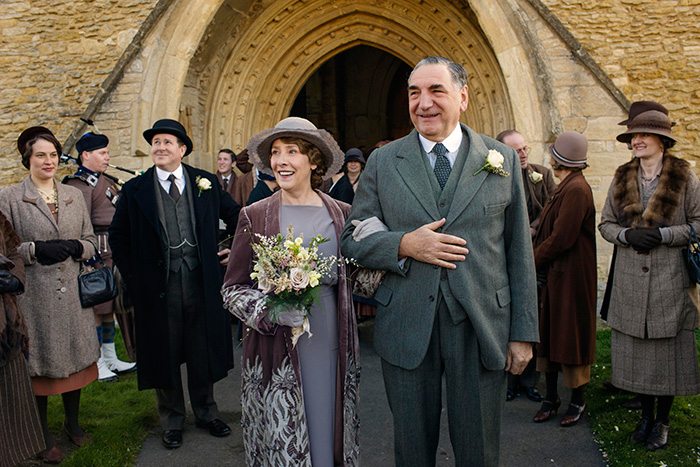
So what did you think about the marriage?
Who would have thought at the start of the show, that they would end up married? I wouldn’t have thought it would be possible, but as it went through, season after season, it became obvious that they were certainly very close.
It was a slow burning flame – but it was definitely there.
I know, and it was lovely to have a wedding and to wear a nice frock! From the very first hand holding moment in the sea – to the final episode, it was a steady, but beautiful build up.
Jim Carter (who plays Mr Carson on the show) had a very amusing outlook on the scene at the end of season four, when we entered the sea together. We were discussing the scene before hand and I said that ‘I’ll hold you hand’ and he amusingly whispered off camera, ‘yes but you think it was just an innocent little paddle but season five opens with two bodies being washed up in the South of France…’ (laughs)
But the scene itself was very touching, it was a real moment for the couple, so I suppose from that point on I thought ‘they could make a good team’.
What about another character? What was one of your favourite moments from the series?
There was this one lovely moment when Mr Molesley was talking to his father outside – it was so beautifully shot. And they were just having this philosophical conversation about the future. It was just after he had lost his job as Matthew’s Butler, and you could see that he has all of these aspirations. The pair were just looking up at the stars in the sky and they were having this incredibly moving conversation about where he could have gone in life, and where he could have ended up. And I just remember thinking ‘how touching’.
Then in this season, when he was asked to teach at the school, I thought about that conversation again. I would have loved to see him have another conversation with his father and for Mr Molesley to say ‘ You’ll never guess what I’m doing now!”.
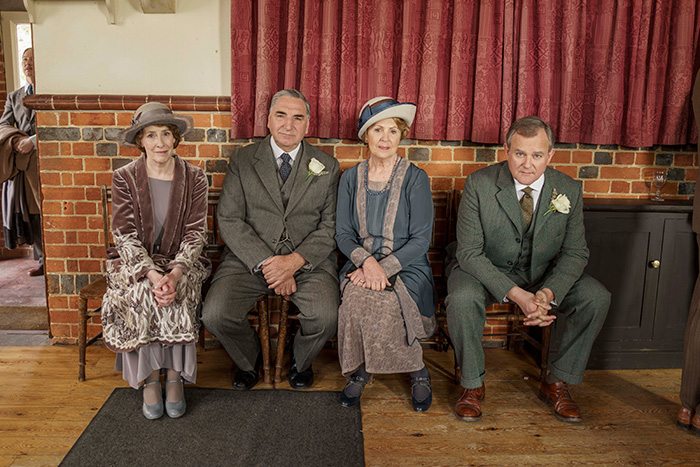
In your ideal world, would Downton Abbey have continued on? Or do you think it ended at the best time?
I think it probably ended when it should have. Mind you, if someone had said, ‘how would you fancy season seven?’ I would have said bring it on! But no, I think that Julian, the producers and the actors, all thought that we’d run our course in a satisfactory way. Julian always said that he wanted to leave the show with people wanting more of it, rather than the opposite way around.
And are you happy with how the final episode ended?
Yes! I thought he did a great job. It was sort of tying things up – especially that Edith, finally, was made happy. Because to be honest, it was looking pretty damn hopeless after Lady Mary, not so graciously, intervened. So yes, it was looking quite bleak for her, so it was nice to see her character finally find happiness.
And Thomas becoming butler – which was quite a turn-up for the books, but he did it in such a way that it didn’t appear overly sentimental or mawkish.
There’s poor old Carson, who’s having to take retirement – not that he wanted to at all, and I felt sorry for him, I did. But it was all finished off in a very settled, and moving way. I really was happy to say goodbye to Downton on those terms.


